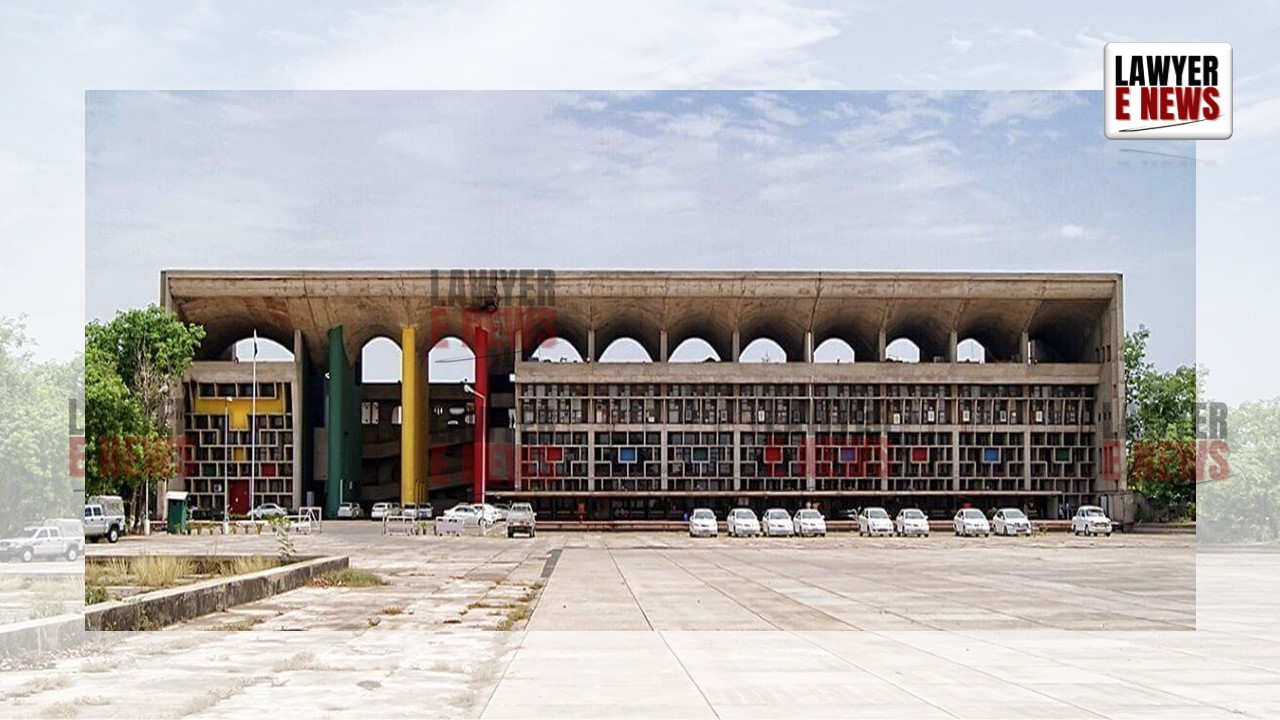-
by Admin
15 February 2026 5:35 AM



Punjab and Haryana High Court ruled on a petition by M/S Commander Realtors Pvt Ltd seeking access to unrelied documents seized by the Central Bureau of Investigation (CBI) during an investigation. These documents, though in possession of the CBI, were neither relied upon nor filed in court. The petitioner argued that these materials were essential to their defense. The High Court upheld the trial court's denial of access to these documents but granted the petitioner the liberty to reapply for specific unrelied documents before the trial court, as per established legal precedents.
The petitioner, M/S Commander Realtors Pvt Ltd, faced charges based on documents that the CBI had included in the final report filed with the court. However, during the investigation, other documents were seized that were not relied upon by the CBI in framing the charges. The petitioner contended that these unrelied documents might contain information that could exonerate them or support their defense.
An application for access to these documents was initially filed before the Special Judge (CBI) in Panchkula but was dismissed on August 4, 2021. The Special Judge held that only relied-upon documents needed to be provided as per Section 207 of the Code of Criminal Procedure (Cr.P.C.). This led the petitioner to file a petition under Section 482 Cr.P.C. before the Punjab and Haryana High Court, challenging the trial court’s decision.
Right of Access to Unrelied Documents for a Fair Trial
The petitioner argued that denying access to seized unrelied documents violated their right to a fair trial. They relied on the Supreme Court’s rulings in Suo Moto Writ (Crl.) No. 1 of 2017 and Manoj v. State of Madhya Pradesh, which affirm that all material, including unrelied documents, should be accessible to the accused if necessary for their defense.
Scope of Disclosure under Section 207 Cr.P.C.
Section 207 of the Cr.P.C. mandates that the accused should receive copies of all documents relied upon by the prosecution. However, the petitioner argued that, for a fair defense, unrelied documents should also be accessible, especially if they might contain exculpatory evidence.
Justice Kuldeep Tiwari carefully reviewed the submissions, relevant statutory provisions, and landmark judicial precedents before delivering the decision.
The court acknowledged that recent Supreme Court rulings emphasize the accused’s right to be informed about all materials collected by the prosecution. In Suo Moto Writ (Crl.) No. 1 of 2017, the Supreme Court ruled that while furnishing the list of documents and statements under Sections 207/208 Cr.P.C., the magistrate should also ensure that a list of unrelied documents is provided. This allows the accused to seek production of any such documents if necessary for a fair trial.
Judicial Precedents on Fair Trial and Document Disclosure
The High Court referenced several precedents, including:
Manoj v. State of Madhya Pradesh, where the Supreme Court mandated that unrelied documents, material objects, and statements be listed for the accused, with the opportunity to request specific items essential for defense.
P. Ponnusamy v. State of Tamil Nadu, which clarified that requests for unrelied documents should be assessed for their relevance to the accused’s defense and should not be granted if intended to delay proceedings.
The High Court found that the trial court had fulfilled its obligations under Section 207 Cr.P.C. by providing all documents that were relied upon in the final report. The trial court’s rejection of the request for unrelied documents was thus legally sound. However, considering the broader right to a fair trial, the High Court emphasized that the petitioner could still reapply at the trial stage if they could justify the relevance of specific unrelied documents to their defense.
The High Court dismissed the petition, upholding the trial court's decision to deny blanket access to all unrelied documents. However, the court provided the petitioner with the liberty to file a fresh application at the trial stage if they required specific unrelied documents. The trial court was directed to consider any such requests based on the relevance of the documents to the accused's defense, in line with the legal standards set out in CBI v. Surinder Pal Singh (CRM-M-26474-2023).
Key Takeaways from the Judgment
Guidelines on Disclosure of Unrelied Documents
The High Court reaffirmed that unrelied documents can be requested by the accused, but such requests must be relevant and specific, not general or for the purpose of delaying the trial.
One-Time Opportunity for Disclosure Post-Charge
The accused is entitled to a one-time opportunity post-charge to request unrelied documents, as per the Draft Rules of Criminal Practice, 2021. This allows the accused to make a targeted request for documents that are directly relevant to their defense.
Fair Trial Rights Versus Prevention of Delay
The court balanced the right to a fair trial with the need to prevent unnecessary delays. While the accused may request unrelied documents relevant to their defense, trial courts have the discretion to deny requests that appear dilatory or irrelevant.
The Punjab and Haryana High Court's decision upholds the right of an accused to a fair trial by granting them limited access to unrelied documents, provided they are essential to the defense. However, it limits this access to specific, relevant documents, ensuring that the disclosure process is not misused to delay proceedings. This judgment reaffirms the judiciary's commitment to fair trial principles while maintaining procedural efficiency.
Date of Decision: October 16, 2024
M/S Commander Realtors Pvt Ltd v. Central Bureau of Investigation
